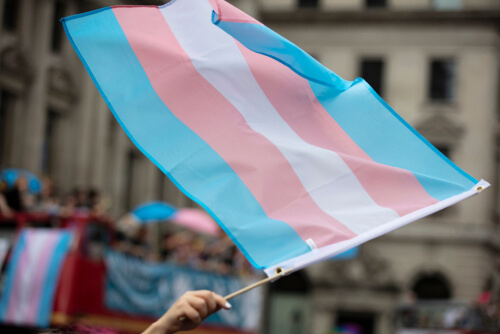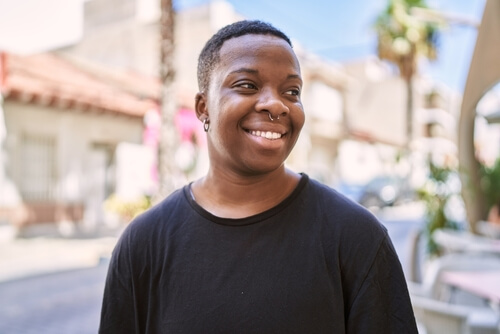- About Us
- All Locations
- Search by State
- American Samoa
- Arizona
- Alabama
- Alaska
- Arkansas
- California
- Colorado
- Connecticut
- Delaware
- Florida
- Georgia
- Guam
- Hawaii
- Iowa
- Illinois
- Idaho
- Indiana
- Kansas
- Kentucky
- Lousiana
- Maine
- Maryland
- Massachusetts
- Mississippi
- Minnesota
- Michigan
- Missouri
- Montana
- Nevada
- New Jersey
- New York
- Nebraska
- North Carolina
- North Dakota
- Northern Mariana Islands
- New Mexico
- Ohio
- Oklahoma
- Oregon
- Pennsylvania
- Puerto Rico
- South Carolina
- South Dakota
- Tennessee
- Texas
- Utah
- Vermont
- Virginia
- Washington
- West Virginia
- Wisconsin
- Wyoming
- US Virgin Islands
- Treatments
- Who We Help
- Paying for Treatment
- Mental Health
- Understanding Mental Health
- Common Mental Health Disorders
- Signs & Symptoms of Mental Illness
- The Impact of Stigma on Mental Health
- Integrative Approaches to Mental Health
- LGBTQ+ Mental Health
- Cultural Factors in Mental Health
- Risk Factors for Mental Illness
- Psychological Testing and Evaluation
- Crisis Management and Suicide Prevention
- Conditions
- Resources
- Advertise with us
Cookies & Privacy
Our website uses cookies. By using our website and agreeing to this policy, you consent to our use of cookies in accordance with our Privacy Policy.

Transgender
Inclusive and affirming care for transgender individuals, offering personalized treatment plans that respect their unique experiences and challenges, ensuring a safe and supportive path to recovery.
Transgender
Transgender Specialized Rehab Centers
The District Behavioral Health Group
The Hope House
Retreat of Boston
Resilience Recovery Resources
Novo Detox
Still Detox
Southeast Addiction Center – Georgia
Southeast Addiction Detox – Georgia

Transgender
Additionally, transgender individuals are more likely to experience mental health issues such as depression, anxiety, and suicidal ideation.
Fortunately, there is a growing number of resources available to support transgender individuals in their journey toward recovery and supporting their mental health, In this guide, we’ve curated a collection of the best resources available to support transgender addiction recovery & mental health. Explore these valuable resources in one ultimate guide.
How Prevalent is Substance Abuse in the Transgender Community?
Breaking the Silence: Shedding Light on Substance Abuse within the Transgender Community
Welcome to our guide’s section on substance abuse within the transgender community. Substance abuse is all too common in our society, and the transgender community is no exception.
In fact, research has shown that transgender individuals face immense challenges when it comes to addiction and mental health, including discrimination, stigma, and lack of access to healthcare. However, this section is not meant to scare you but to inform and empower you.
Research shows that substance abuse is more prevalent among the transgender community than among cisgender individuals. According to a study conducted by the National Center for Transgender Equality, 26% of transgender individuals reported misusing drugs and alcohol, compared to 9% of the general population
In fact, rates of addiction among transgender people are “disproportionately higher” than rates of substance misuse in the general community, writes the Center for American Progress. As many as 30% of LGBT people report abuse of drugs and alcohol, while the general rate of misuse is only 9%.
Alcohol and drugs such as marijuana, opioids, and prescription medications are among the most commonly abused substances in the transgender community.
- Transgender individuals were more likely to report heavy alcohol use (defined as consuming five or more drinks on the same occasion on at least one day in the past month) than cisgender individuals (25.4% vs. 19.6%).
- 10.3% of transgender individuals reported using cocaine.
- Transgender individuals were more likely to report using marijuana in the past year than cisgender individuals (21.8% vs. 15.2%).
- 41.3% of sexual minority adults reported past-year marijuana use in 2020, compared to 18.7% of the overall adult population.
- Transgender individuals were more likely to report using prescription pain relievers in the past year than cisgender individuals (11.4% vs. 6.6%).
Minority Stress Theory explains that when people from different groups (like cultures or genders) feel different from the bigger group, it causes stress. This can happen to transgender people because they feel different in a mostly straight world. They face a lot of problems like being bullied, harassed, or mistreated. Some of them may turn to drugs or alcohol to cope, especially when they are influenced by LGBTQ culture.
We firmly believe that with the right support and tools, anyone can find the strength to overcome addiction and reclaim their life. So let’s dive in and learn how we can work together to support the transgender community in their journey toward recovery.
*Note: Many federally funded surveys have only recently started to ask about sexual orientation and gender identification in their data collections. Therefore, it is not yet possible to establish long-term trends in substance use and SUD prevalence in LGBTQ populations.
As a transgender person of color, the intersection of my identities has made it even more difficult to access the mental health care and addiction treatment I need. We need more resources and support for marginalized communities like mine. Alok Vaid-Menon, gender non-conforming writer and performance artist
Alok Vaid-Menon, gender non-conforming writer and performance artist
The Best
Treatments For You
View allGet confidential and professional help for substance abuse & mental health conditions right now.
Get Confidential CallbackMental Health Concerns in the Transgender Community
Higher Lifetime Suicide Attempt Rate
Approximately 40% of transgender adults have reported attempting suicide, compared to less than 5% of the general U.S. population.
Youth Suicide Risk
Transgender youth are at a particularly high risk, with some studies indicating that more than 50% of transgender youth have seriously considered suicide, and about 30% have attempted suicide.
Impact of Family Rejection
Transgender individuals who experience high levels of family rejection are more than 8 times more likely to attempt suicide than those who experience little or no family rejection.
Mental Health Correlation
Transgender people with mental health conditions such as depression or anxiety are at a significantly increased risk for suicidal behavior.
Discrimination and Harassment
Experiencing discrimination, harassment, or violence significantly increases the risk of suicide attempts. Transgender individuals who face such adversities are twice as likely to attempt suicide compared to those who do not.
Lack of Access to Gender-Affirming Care
Transgender individuals who are unable to access gender-affirming care are more likely to attempt suicide than those who receive the care they need.
Economic Instability
Transgender individuals facing unemployment, poverty, or homelessness are at higher risk of suicidal behavior.
School Environment
Transgender students who experience bullying, harassment, or discrimination at school are at higher risk of considering or attempting suicide.
Transgender Help Lines
Trans Lifeline
Trans Lifeline offers peer support and crisis intervention services specifically for transgender individuals. This vital resource provides a confidential hotline staffed by trans volunteers who understand the unique challenges facing the transgender community. Whether you’re seeking support for substance abuse, mental health concerns, or simply need someone to talk to, Trans Lifeline is here to listen and support you on your journey to recovery
Crisis Text Line
The Crisis Text Line offers free, confidential support via text message to individuals in crisis, including transgender people struggling with substance abuse or mental health challenges. Trained crisis counselors provide compassionate assistance and referrals to resources that can help you navigate your recovery journey. Text HOME to 741741 to connect with a crisis counselor and get the support you need.
LGBT National Hotline
The LGBT National Hotline offers confidential support, information, and referrals to LGBTQ+ individuals across the United States. Trained volunteers provide compassionate assistance to transgender individuals seeking help with substance abuse, mental health issues, or other concerns. Whether you’re in crisis or simply need someone to talk to, the LGBT National Hotline is available to support you 24/7. LGBT Hotline Website (888)843-4564
AVP Hotline
The AVP (Anti-Violence Project) Hotline provides support and assistance to LGBTQ+ individuals who have experienced violence or discrimination, including transgender people seeking help with substance abuse or mental health issues. Trained counselors offer confidential support, safety planning, and referrals to resources that can support your recovery and well-being. Call the AVP Hotline at 800.799.SAFE (7233) to connect with a trained counselor who understands the unique challenges facing the transgender community.

Transgender Substance Abuse Resources
Finding Freedom: Substance Abuse Resources for the Transgender Community
Transgender individuals facing incredible challenges require specific resources and support when seeking help with substance abuse.
You’re never alone. Keep these substance abuse resources handy:
Transgender Addiction Recovery
- Transgender Addiction Recovery: Online recovery community with specialized meetings for transgender individuals.
Lambda Center
- Lambda Center: Safe and welcoming space for LGBTQ+ individuals.
The Center at Sierra Health Foundation
Community-based organization providing substance abuse treatment for transgender individuals.
Transgender Domestic Violence Resources
Breaking the Silence: Transgender Domestic Violence Support and Resources
Transgender individuals are at a higher risk of experiencing domestic violence, and it can be difficult to find resources that are specifically tailored to their needs.
Here are some accessible resources for transgender individuals who are experiencing domestic violence:
- The National Domestic Violence Hotline: 24/7 support for individuals experiencing domestic violence, including transgender individuals.
- Find a Domestic Violence shelter by state.
- Anti Violence Project: Empowers transgender and other minority communities and allies to end all forms of violence through organizing and education.
- FORGE: Support for transgender individuals who have experienced domestic or sexual violence.
- The Anti-Violence Project: Resources and support for LGBTQ+ individuals.
- The Network/La Red: DV eesources for LGBTQ+ individuals.
- The Transgender Law Center: Legal support and advocacy for transgender individuals impacted by domestic violence.
It’s crucial for transgender individuals who are experiencing domestic violence to know that they are not alone and that there are resources and support available to help them.
Transgender Podcasts
Listen, Learn, and Empower: Inspiring Transgender Podcasts for All
Transgender podcasts are an eengaging resource covering a variety of relevant topics, including mental health, addiction recovery, and experiences of being transgender.
Here are some popular podcasts elevating transgender voices:
- Gender Reveal – Hosted by Molly Woodstock, this podcast explores gender identity and dives into transgender experiences.
- One From the Vaults: Hosted by Morgan M Page, showcases stories from the history of transgender and gender-nonconforming people.
- Therapy for Black Girls: A weekly chat about all things heath, harmony, and healing.
- TransMissions: Hosted by a licensed therapist a mental health-focused podcast aimed at transgender individuals and their allies.
- Mental Note Podcast: Hosted by Carrie Zhang, focus on removing the stigma of mental health from the Asian Pacific Islander Desi American community.
- NB: A BBC Radio podcast hosted by Caitlin Benedict and Amrou Al-Kadhi, gain a thoughtful and engaging look into nonbinary experiences.
- Trans Specific Partnership: Explores the intersection of transgender identity, addiction, and mental health recovery.
- The Gender Knot Podcast: Explores the various ways gender intersects with culture and society, discussing topics such as mental health, addiction, and transgender experiences.
These podcasts provide a platform for transgender voices and offer valuable resources for anyone interested in learning more about the transgender community, mental health, and addiction recovery. A great starting point for fostering understanding, empathy, and support.
Transgender Social Media Accounts To Follow
Uplifting Voices: Transgender Influencers & Advocates to Connect With
These accounts offer insights into mental health, addiction recovery, and transgender experiences.
Here are some notable accounts to follow:
- Laverne Cox: Laverne is an actress and LGBTQ+ advocate who shares her life experiences, transgender rights activism, and mental health awarenes via Instagram.
- Janet Mock: Janet is a writer, director, and transgender rights activist. Her Twitter account focuses on her work, transgender issues, and mental health resources.
- Jacob Tobia: Jacob is a genderqueer writer, performer, and LGBTQ+ activist. Their Instagram account features discussions on gender identity, mental health, and self-care.
- Munroe Bergdorf: Munroe is a model and transgender activist who shares her experiences and thoughts on transgender rights, mental health, and addiction recovery through her Instagram account.
- Trans Lifeline: For transgender people, by transgender people. Their Twitter offers support, and mental health advice for the transgender community.
- Sam Dylan Finch: Sam is a transgender writer and mental health advocate. Their Twitter account provides a mix of personal experiences, and mental health advice for transgender individuals and allies.
- Aydian Dowling: Aydian is a transgender bodybuilder, entrepreneur, and advocate. His Instagram account showcases his journey, transgender rights activism, and body positivity.
- Alok Vaid-Menon Gender non-conforming writer, poet, and performer. Their social media accounts are filled with powerful messages of self-love, activism, and community building.
- Raquel Willis: Raquel Willis is a writer, activist, and transgender rights advocate. She highlight the voices of marginalized communities, and to promote social justice.
Some of them use their platforms to raise awareness about the challenges faced by transgender individuals in addiction recovery and mental health.
Here are a few examples:
- Chase Ross: Chase is a transgender YouTuber who has been open about his struggles with alcoholism and his journey to sobriety. He shares videos about addiction recovery, mental health, and his transition on his YouTube channel.
- Mara Keisling: Mara is the Founder and Executive Director of the National Center for Transgender Equality. She has openly shared her struggles with depression, anxiety, and sobriety on her social media platforms.
By following these accounts, you can access a wealth of information, support, and understanding, while also contributing to the visibility and empowerment of the transgender community.
Transgender Audiobooks and Books
Transforming Lives: Essential Reads on Transgender Mental Health & Recovery
Discover invaluable insights and guidance with these essential books focused on transgender mental health and addiction recovery.
Give a listen to these resources offering support, understanding, and practical advice:
- Writing for Healing and Recovery: Writing workshops for LGBTQ+ individuals to explore their emotions and foster healing.
- ’Trans Bodies, Trans Selves: A Resource for the Transgender Community’ by Laura Erickson-Schroth: A comprehensive guide addressing various aspects of transgender life.
- TED Talks on Transgender Experiences: A curated playlist of TED Talks that delve into transgender identities, mental health, and addiction recovery.
- ‘The Gender Book’ A Collaboration of Transgender Contributors: This illustrated guide discusses gender identity, an excellent resource for transgender individuals, allies, and professionals.
- ’Gender Identity, Sexuality and Autism: Voices from Across the Spectrum’ by Eva A. Mendes and Meredith R. Maroney: A collection of personal accounts and professional perspectives exploring the intersection of gender identity, sexuality, and autism spectrum disorders.
- ’Transgender Mental Health’ by Eric Yarbrough: A practical resource for mental health professionals for care to transgender clients.
- ’The Gendered Brain: The Neuroscience of Gender Identity’ by Gina Rippon: A groundbreaking, insightful exploration of the neuroscience behind gender identity.
- ’The Trans Generation: How Trans Kids (and Their Parents) are Creating a Gender Revolution’ by Ann Travers: A sociological study of transgender children and their families, highlighting the experiences and challenges faced.
- ’Transgender Medicine: A Multidisciplinary Approach’ by Wylie C. Hembree, MD, and MD Ruben O. Colman: Multidisciplinary guide to transgender healthcare, for medical professionals to offer quality care to transgender patients
Resources to Help Families, Allies, Professionals
Thriving Together: Navigate Supporting Health and Happiness
Transgender individuals face an uphill battle, but they do not have to go it alone. These family-focused resources are dedicated to supporting parents and family members of transgender individuals.
Resources specifically designed to support and educate family members, allies, and professionals include:
Gender Spectrum: Provides information and resources for parents to support their transgender child’s mental health, including tips for affirming their child’s gender identity and seeking out supportive services.
Transgender Peer Support Groups by Gender Spectrum: A safe space online for transgender individuals and their families.
Transgender Equality Toolkit: The White House released a toolkit with best practices for advancing inclusion, opportunity, and safety for transgender Americans.
How to be an Ally to Transgender Older Adults: The National Resource Center on LGBT Aging and FORGE have collaborated to create this toolkit for supporting older transgender individuals close to you.
Mental Health and Addiction Recovery Training for Professionals: Training and resources for healthcare professionals to better understand and support transgender individuals.
Supporting Transgender Students in Schools: Guide from the National Education Association for educators and administrators.
PFLAG: Advancing equality and providing support for transgender individuals and their families.
Resource guide and new website The Department of Health and Human Services with youth resources for parents, and providers.
Trans Lifeline: This hotline provides support and resources for transgender individuals and their families, including support for mental health and substance abuse issues.
The Trevor Project: Crisis intervention and suicide prevention services for transgender youth and resources for parents.
Substance Abuse and Mental Health Services Administration (SAMHSA): This government organization provides resources and support for families dealing with mental health and substance abuse issues related to transgender loved ones.
Whether you are seeking information on how to support your child’s mental health or reduce their risk of substance abuse, we have got you covered.
This guide is just the beginning. There is a growing number of resources available to support transgender individuals who are struggling with addiction and mental health issues. it’s important to continue to advocate for policies and resources that support this community.
It’s important to note that not everyone has access to these resources, and systemic barriers can make it difficult for some transgender individuals to get the care they need.
Advocacy and policy change are essential for creating a more equitable healthcare system for all individuals. By working together, we can create a more inclusive and supportive society for all individuals. Let’s make sure that no one has to face their battles alone.
Health Insurance can pay for treatment
View MoreSubscribe to our Newsletter
Stay updated with the latest news and offers from Find Luxury Rehabs.
Find Luxury Rehabs 2026 © All rights reserved.
Back to top



















